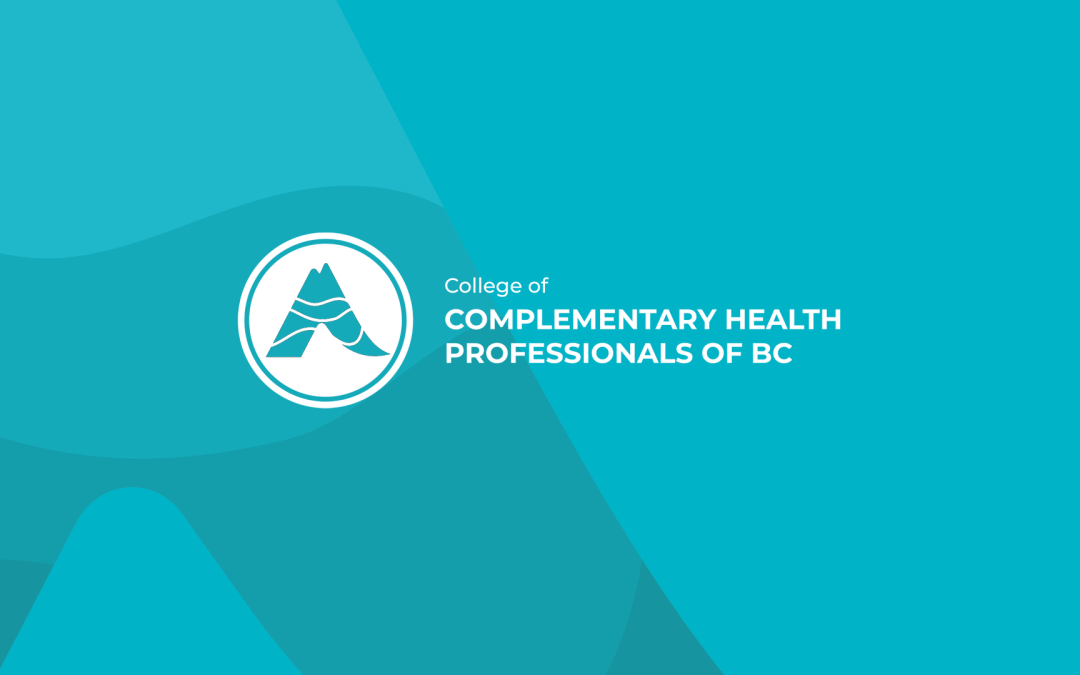Today is the National Day for Truth and Reconciliation, also known as Orange Shirt Day. It’s a time to honour the spirit of Reconciliation and recognize the history and the impacts of the residential school system in Canada.
Every year, communities across the country come together on September 30 to reflect, share stories, and engage in meaningful conversations to honour residential school Survivors. Many of the impacts of the residential school system are with us today—that is why at the College of Complementary Health Professionals (CCHPBC), we believe in the paramount importance of honouring and foregrounding the worldviews and perspectives of Indigenous Peoples. Today, these experiences are fundamental to understanding the Truth in Reconciliation.
What is Orange Shirt Day?
Before September 30 was recognized as the National Day for Truth and Reconciliation, it was known as Orange Shirt Day. Phyllis Jack Webstad, Northern Secwépemc (Shuswap) from the Stswecem’c Xgat’tem First Nation (Canoe Creek/Dog Creek Indian Band), and her community established Orange Shirt Day in 2013. The symbol that represents the day comes from the memory of Phyllis’s orange shirt being taken from her on her first day at a residential school when she was just six years old.
This grassroots initiative quickly grew into a nationally recognized movement, and on September 30, 2021, the National Day for Truth and Reconciliation was observed for the first time as a federal statutory holiday. The day exists now as an important opportunity to connect, share stories, and engage in meaningful conversations that spread awareness about the tragic history of the residential school system, and how that history is still felt, experienced, and expressed today.
Why it’s important to honour the Truth in Reconciliation
Reflecting on our history and learning about the unique experiences of Indigenous Peoples is the first step towards an individual journey to decolonize our mindset, and disrupt racist, colonial, ableist, geographic, and gendered inequities. While challenging, it is important to recognize and engage with the history of the residential school system, not only on September 30, but throughout our lives as we take steps on our personal journeys toward Reconciliation.
The word Reconciliation, in the context of the National Day for Truth and Reconciliation, was defined in the Final Report of the Truth and Reconciliation Committee of Canada as “an ongoing process of establishing and maintaining respectful relationships… [reconciliation] is about respect.” It is important to also recognize that it is individuals and institutions that must reconcile, and Indigenous people who have been harmed.
The impacts of residential schools continue to affect the lives of Survivors of the system, as well as the lives of their families. That’s why it’s important to listen to the experiences of Survivors, to engage in meaningful discussions, and to reflect on our personal awareness of Canada’s colonial history and its ongoing permutations that continue in the present. This process of exploration, connection, and reflection is fundamental to recognizing the spirit of the day, because before we can reach a place that encompasses the definition of Reconciliation, we must first work hard to understand the Truth. Individual engagement with and reflection on this history of colonialism is the first step towards systemic change and decolonizing the structures that divide us.
How to support the Truth and the journey toward Reconciliation
The first step to understanding the Truth begins with education, awareness, and meaningful conversation. Today, we would like to invite everyone to engage in thoughtful exploration, connection, and reflection that recognizes the history of the residential school system and the resilient legacy of its Survivors and their families.
Staff recommended reading and resources
Internally, CCHPBC continues build capacity through exploring and engaging with many of the learning resources provided by H.E.A.L. Healthcare, in addition to the resources below.
1. 48 Books by Indigenous Writers to Read to Understand Residential Schools – CBC Books
This list of books offers powerful personal and collective stories from Indigenous voices. Each book provides insight into the lived experiences of residential school Survivors and their communities. Reading these works is a vital act of listening—essential for anyone committed to Truth and Reconciliation. They invite empathy, education, and a deeper understanding of Indigenous resilience.
2. Redressing First Nations Historical Trauma: Theorizing Mechanisms for Indigenous Culture as Mental Health Treatment by JP Gone
In this academic article, JP Gone explores how reconnecting with Indigenous culture can serve as a form of healing from historical trauma. This paper frames cultural practices not just as traditions, but as vital tools for fostering emotional well being and enhancing mental health. This insight deepens our understanding of Reconciliation by highlighting how truth-telling must be paired with Indigenous-led healing methods to restore well-being.
3. Sixties Scoop by Erin Hanson
This resource explains the Sixties Scoop, a term that describes a time where thousands of Indigenous children were removed from their families and placed into non-Indigenous homes. Erin Hanson presents the trauma and loss of identity that resulted from the scoop, explaining not only the history of the policy, but also how it disrupted and irrevocably altered lives and communities.


